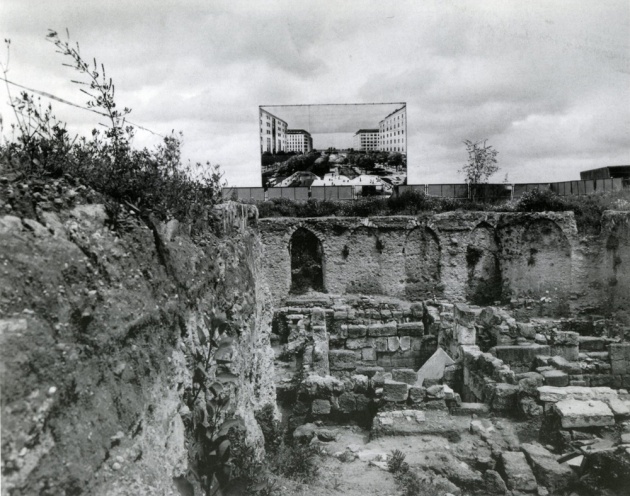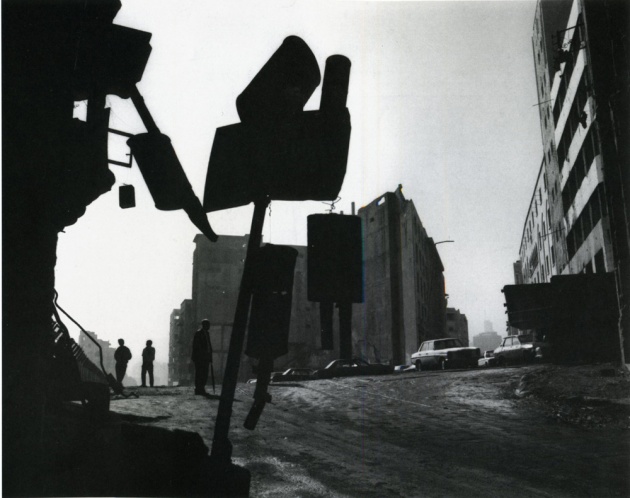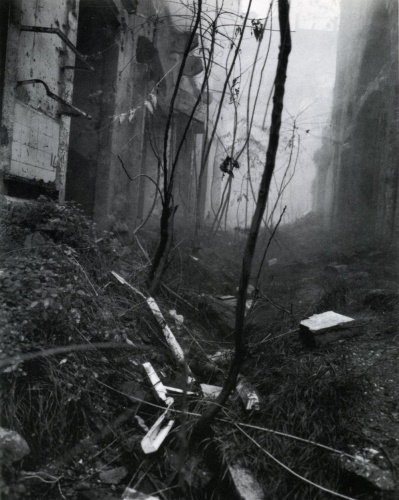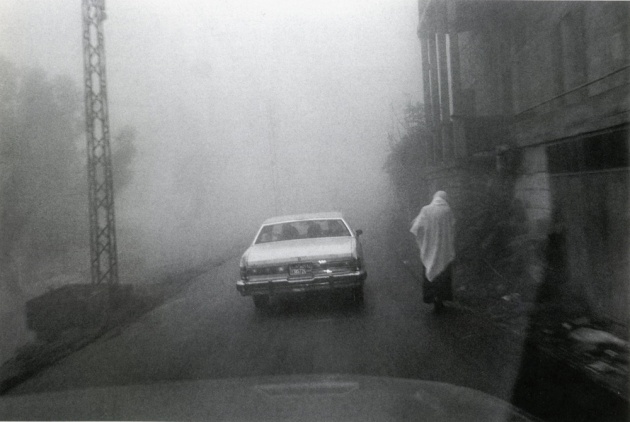Fouad Elkoury
January 6-29, 2000
The idea of putting together images taken while strolling in the street is somehow frustrating. Producing beautiful unique pictures has become meaningless. In the course of my work, I have been guided by my feelings, not worrying about what I am photographing but how, relying on the contact sheets to boost me up. Yet I find it difficult to define what sustains the work.
In particular cases of Beirut, I had well defined mission, which consisted of showing the ruins of a torn-down city. For me, it meant conveying the atmosphere of a ruined city. It was fascinating to walk in a confined area and play, day after day, with elements of light, water, greenery and freedom. Strangely enough life was a present in the ruins as it was previously in the thriving city.
If I place this work in a more general context, what links it all remains a mystery. Ruined cities, because of their silence, are certainly an area of interest. Suburbs too, when the limit between urban and rural is not yet defined. The same applies to dusk. Has it got to do with a dislike of established situations and interest in disorder and unsettled moments.
Fouad Elkoury's black and white images of Beirut explore the culture and day to day struggles of people trying to make a life in this devastated, war-torn city. Tense and haunting, Elkoury's images were collected and published in Liban Provisoire, the 2nd book in his trilogy on the Middle East. In 1996 Elkoury published Palestine, l'envers du miroir and Suite Egyptienne followed in 1998. Born in Paris of Lebanese parents, his perspective on Beirut is personal and intimate. He has worked as a journalist throughout the Middle East and is currently working on a project in Turkey.




